Chiacchiere con Chiara : Lesley Smith – E’ arrivata in Toscana dall’Inghilterra e qui ha finito per creare una famiglia pur rimanendo fieramente e profondamente inglese. Lesley Erica Smith è una fotografa ed illustratrice professionista ma è anche una mamma, una donna dai mille interessi e profondamente inserita della comunità italiana dove vive. Infatti è anche volontaria nella Pubblica Assistenza, un’associazione italiana molto attiva che in supporta il lavoro di ospedali e medici.
Lesley è una mia amica, anche se non ci vediamo quanto vorrei; è un’amica inglese che abita in Toscana e la nostra amicizia risale a più di 10 anni fa. Prima di questa intervista ci siamo domandate quando ci siamo conosciute? risale a più di 10, forse 15 anni, quando io ancora abitavo in Inghilterra e Lesley già abitava in Toscana. Fra le sue attività, fa delle cose molto interessanti come per esempio un workshop di fotografia per strada, street photography, usando lo smart-phone che è davvero divertente. Oggi io voglio scoprire con voi la storia di Lesley, che parla italiano molto bene, e vorrei sapere come ha imparato, come è arrivata in Toscana e come si trova.
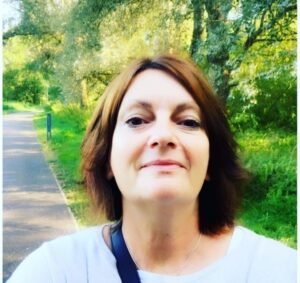
(EN) She arrived from England in Tuscany, where she ended up creating a family while remaining proudly and deeply British. Lesley Erica Smith is a professional photographer and illustrator; she is also a mother, a woman of many interests and deeply involved in the Italian community where she lives. In fact, she is also a volunteer in Public Assistance, a very active Italian association that supports the work of hospitals and doctors.
Lesley is a friend of mine, although we don’t see each other as much as I’d like; she lives in Tuscany and our friendship dates back more than 10 years. Before this interview we asked ourselves when did we meet? it dates back more than 10, maybe 15 years, when I was still living in England and Lesley was already living in Tuscany. Among her activities, she does some very interesting things such as a her street photography workshop, using the smart-phone which is really fun.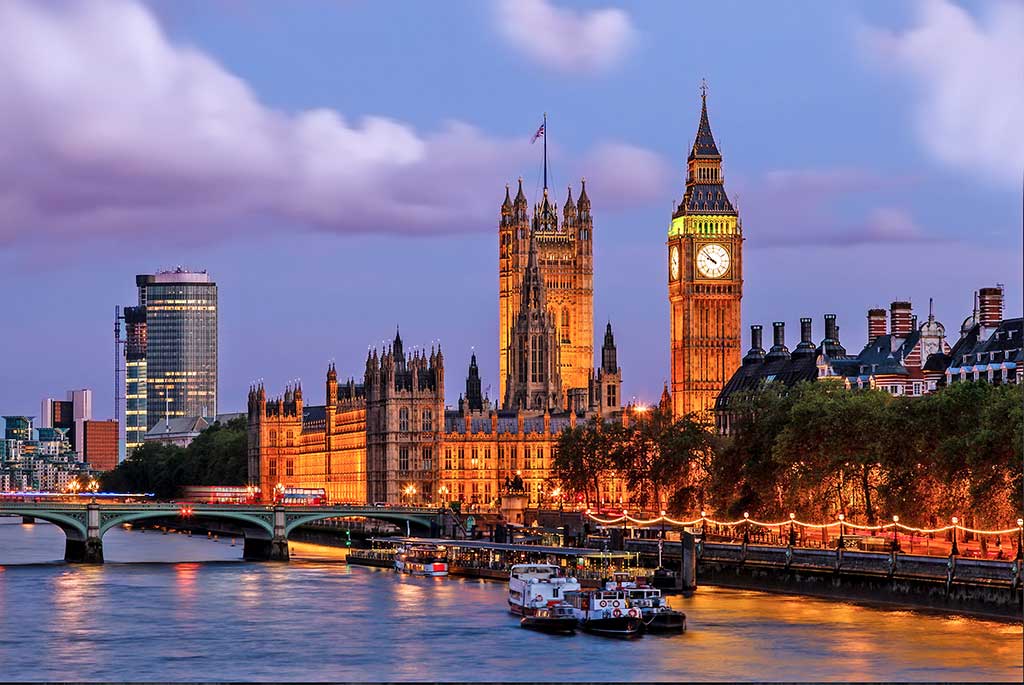
Today I want to discover with you the story of Lesley, who speaks Italian very well, and I would like to know how she learned it,and how she arrived in Tuscany.
Video intervista Youtube
Trovate la nostra intervista video sul canale Youtube QUI ( per favore, abbonatevi!) – (EN) You can find the video interview on Youtube channel HERE ( and you are welcome to subscribe for free to my channel!) 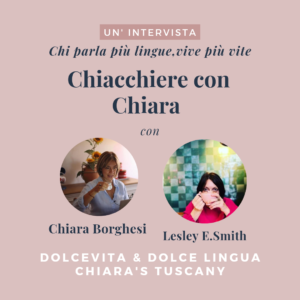
Domande- Comiciamo?
CH: Allora, Lesley di dove sei esattamente e quando sei arrivata qui?- (EN) Where are you from exactly and when did you arrive?
Lesley: Sono arrivata nel 2002 per un workshop di fotografia, poi l’anno dopo, nel 2003, sono tornata con tutta la mia roba, il mio cane, per vivere pensando magari per 6 mesi- 1 anno. Poi rimanevo sempre un po’ di più e poi dopo 2 anni ho incontrato il mio compagno, toscano DOC, un contadino, agricoltore e abbiamo un figlio di 13 anni, Alex, e ora lavoro qui. Ma originariamente sono di Londra. Un bel salto!
(EN) I arrived in 2002 for a photography workshop, then the following year, in 2003, I returned with all my stuff, including my dog, to live here, thinking maybe for 6 months-1 year. Then I kept staying a little longer and then after 2 years I met my partner, a real Tuscan man, a farmer, we have a 13 year old son and now I work here. But I’m originally from London. Quite a change!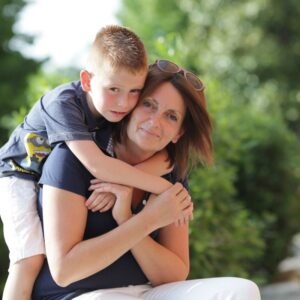
CH: Ecco, sì un bel salto ! Da Londra alla Toscana, soprattutto anche perché tu non abiti in una città ma in un villaggio! è un grande salto! – (EN) Here, yes, quite a leap! From London to Tuscany, especially since you don’t live in a city but in a village! that’s a big change!
Lesley: Si vivo in un piccolo villaggio di 20 case! / (EN) Yes, I live in a small village, about 20 houses!
CH: Quando sei arrivata la prima volta, come era il tuo italiano?- (EN) How was your Italian when you first arrived?
Lesley: Quando sono venuta qui a vivere avevo fatto un piccolo corso in Inghilterra prima , ma poca cosa, e poi a Siena ho fatto un corso intensivo alla Università per Stranieri, 7 ore al giorno, per 3 settimane
(EN): When I came here to live I had done a small course in England, but not much, and then in Siena I did an intensive course at the University for Foreigners, 7 hours a day, for 3 weeks
“Tanta roba”!
CH: Il cervello fumava… -(EN) Your brain must have been smoking!
Lesley: Infatti la sera si non si faceva altro perché ero stanca, si era “tanta roba” però mi ha dato una bella base per cominciare – (EN) In fact, in the evening we didn’t do anything else because I was tired, yes it was “a lot of stuff”(”tanta roba”) but it gave me a good basis to start
CH: E come hai migliorato poi?_ (EN) And how did you improve your language ?
Lesley: Per esempio quando vai dal veterinario per il cane, impari quelle parole lì, poi vai dal meccanico e impari quelle parole che ti servono, inoltre, all’inizio, convivevo anche con due ragazzi italiani e quindi tutto il tempo parli e se vivi in un posto, alla fine, impari! Per due anni ho fatto tutti gli esami di lingua italiana con la grammatica, eccetera.
(EN) For example, when you go to the vet for the dog, you learn those words there, then you go to the mechanic and you learn the words you need. Moreover, at the beginning I used to live with two Italian girls and so you talk all the time and , basically, when you live in one place you learn ! For two years I did all the Italian language exams with grammar, etc.
CH: Cos’è che hai trovato più difficile della lingua italiana?- (EN) What did you find most difficult in the Italian language?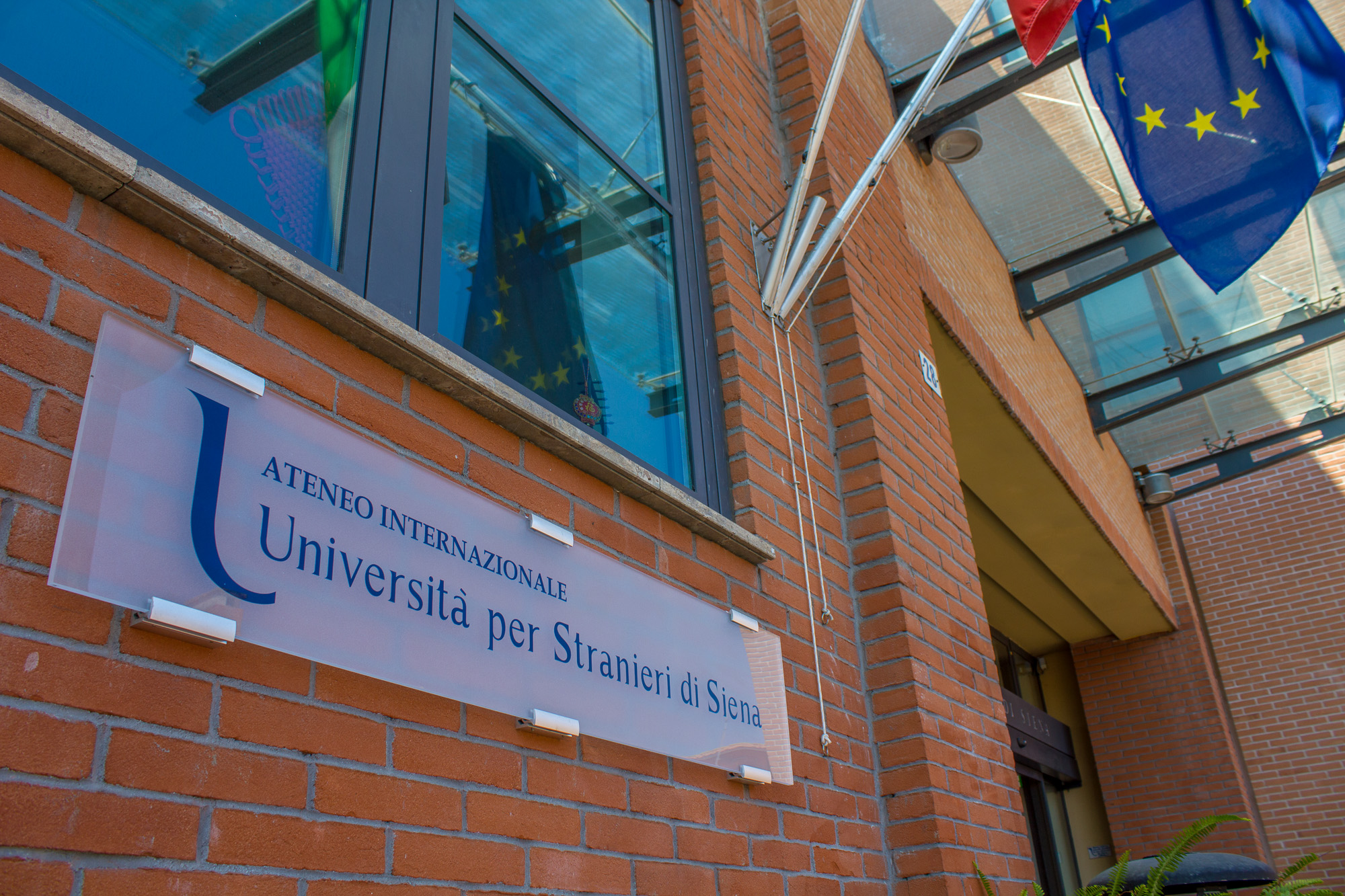
Lesley: Per me i verbi sono difficili perché ci sono più coniugazioni che in inglese! il Passato remoto per esempio , che lo devi riconoscere anche se non lo usi mai. E poi l’accento a volte dei vecchietti del posto qui, a volte è difficile.
(EN) For me verbs are difficult because there are more conjugations than in English! Past Historical, for example , something that you have to recognize even if you never use it. And then the accent sometimes of the old locals here, sometimes it’s difficult for me.
La C toscana
CH: Si capisco, perché in Toscana anche se non c’è un dialetto, tuttavia c’è un accento forte a cui abituarsi !- (EN) I do understand, because in Tuscany even though there isn’t a dialect, however, there is a strong accent to get used to.
Lesley: Certe parole sono pronunciate in modo diverso, per esempio qui dicono per il supermercato che si chiama Coop, la gente dice “si va alla Coppe”! / (EN) Some words are pronounced differently. To give you an exemple, here to call the local supermarket named Coop, people say : “let’s go to Hoppe”!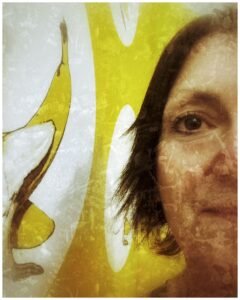
CH: Eh si capisco, la Hooppe! Anche io, con i miei amici di altre parti d’Italia, mi prendono in giro perché anche se cerco di parlare in italiano corretto, pulito , a volte pronuncio le parole con la C aspirata, tipica toscana, e loro, per ridere, mi fanno ripetere “Vorrei una Hoha hola hon la hannuccia!” ( vorrei una coca cola con la cannuccia”). Questo è oggetto di ilarità!
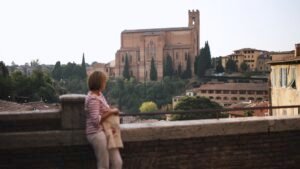
- Raccontami dei tuoi workshop di street photography che cosa sono esattamente?
(EN) Yes, I understand! My friends, from other parts of Italy, they make fun of me because, even if I try to speak in correct, clean Italian, sometimes I pronounce the words with an aspirated C, typical in Tuscany, and they, for a laugh, ask me to repeat “ I would like a Coke with a straw “ but my pronounciation of the phrase “vorrei una Coca Cola con la cannuccia”…because of the many “C” comes out really funny! it’s hilarious!
- Tell me about your street photography workshops what exactly are they?
Street Photography Workshop
Lesley: Allora, avevo un cliente per cui facevo dei ritratti della famiglia ogni anno e, una volta, mi ha chiesto di insegnargli un pochino la fotografia con lo smartphone: Io di solito usavo la macchina fotografica. Così ho studiato un po’ come fare con I- phone. Ho scaricato delle applicazioni (delle App), inoltre oggi questi telefoni hanno una qualità di immagine ottima, e ho iniziato così, e l’ho trovato molto interessante. Poi ho visto che c’erano delle opportunità su Airbnb e ho creato lì delle esperienze, lunghe un paio di ore, che possiamo fare a Siena, Montalcino ma si possono fare un po’ ovunque. Insegno la composizione, come usare la luce naturale, come osservare, guardare e in fondo facciamo anche un po’ di editing.
(EN) I had a client that I did family portraits for every year. Once, she asked me to teach her a little bit about smartphone photography: I usually used a camera. So I studied a little how to do it with iPhone. I downloaded applications (Apps), and today these phones have excellent image quality, and that’s how I started, and I found it very interesting. Then I saw that there were opportunities on Airbnb and I created experiences there, around a couple of hours long, which can be done in Siena, Montalcino but almost everywhere. I teach composition, how to use natural light, how to observe, watch and at the end , we also do some editing.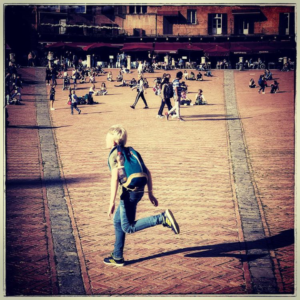
CH: Questo so che è molto richiesto perché tutti noi usiamo i social media, io sono ancora un po’ primitiva, ma è molto interessante imparare come fare foto per Instagram e i social media. – (EN) I know it’s in high demand because we all use social media, I’m still a bit primitive, but learning how to take pictures for Instagram and social media is very interesting.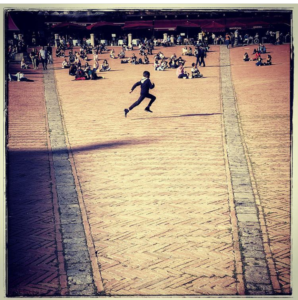
Lesley: Si infatti è interessante, io mi diverto e le persone se ne vanno felici perché hanno imparato qualcosa di nuovo, ognuno va via con un’idea migliore su come fare foto interessanti.
(EN) Yes indeed it is interesting, I enjoy it and people leave happy because they have learned something new, everyone leaves with a better idea on how to take interesting photos.
CH: Io ho fatto questo workshop con te e con i miei studenti e trovo molto interessante perché è anche come un nuovo modo di guardare la città. Con il telefono in questo caso, come con la macchina fotografica, hai attenzione per certi dettagli che normalmente non vedresti.- (EN) I have done this workshop with you and with my students and I find it very interesting because it’s also like a new way of looking at the city. With the phone in this case, as with the camera, you have attention to certain details that you wouldn’t normally see.
Lesley: Sì, infatti si può anche scegliere un tema, può essere un colore e si cerca proprio quel colore per fare delle foto / (EN) Yes, in fact you can also choose a theme. It can be a color and then you look for that color to take all your pictures.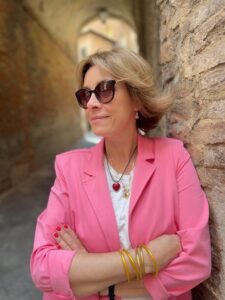
CH: Lesley in particolare è molto interessata ai colori, perché è anche un’illustratrice – (EN) Lesley in particular, is very intersted in colours because she is also an illustrator.
Lesley: A me piacciono i colori forti, i contrasti anche quando disegno, noto i colori, oggi per esempio, siamo tutte e due vestite di rosa fucsia, o chiamato anche magenta. Poi mi piace il blu, il turchese
(EN) I like strong colors, contrasts even when I draw, I notice the colors, today for example, we are both dressed in fuchsia pink, or also called magenta. Then I like blue, turquoise
Lingua, Abitudini & Famiglia Bilingue
CH: una domanda su tuo figlio, lui è bilingue?- (EN) A question about your son. Is he bilingual?
Lesley: Si è bilingue, è cresciuto con me in inglese, in italiano con il suo babbo, l’anno prossimo va al Liceo Linguistico a Siena dove farà altre due lingue. Parla un inglese come se fosse andato una scuola privata, molto posh.
(EN) Yes, he is bilingual, he grew up with me in English, in Italian with his father, next year he will go to Linguistic High School in Siena where he will study two more languages. He speaks English as if he went to private school, very posh
CH: “chi parla piu lingue vive più vite” … Nel tuo caso l’Italiano ti ha aperto una vita nuova, molto diversa in Italia, come è stata la tua esperienza con la lingua? – (EN) In your case, the Italian language has opened up a new life for you, very different in Italy, how was your experience with the language?
Lesley: Imparare la lingua è stato importante, se non puoi parlare con la gente in un posto non ci vivi. Non è la stessa cosa se parli solo inglese e non sai parlare. È bello, È una sfida e c’è una soddisfazione quando raggiungi certi punti. Ti rendi conto che capisci di più, sbagli di meno… Poi in questa zona di Italia, è strano a me all’inizio sembrava che la gente era sempre “incavolata” (in slang, linguaggio colloquiale, significa arrabbiata). Dunque ti domandi di che parlano, e poi scopri che è una cosa banale e va tutto bene.
(EN) Learning the language was important. If you can’t talk to people in the place you are in, you don’t really live there. It’s not the same if you only speak English. Learning is beautiful, It’s a challenge and there is a satisfaction when you reach certain points. Like when you realize that you understand more, you make less mistakes. Then in this area of Italy, there was something strange to me: at first it seemed that people were always “incavolata” (in slang, colloquial language, it means angry). So you wonder what they’re talking about, and then you find out it’s something trivial and it’s all right.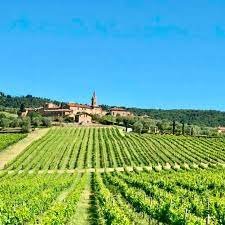
CH: Vero! Per gli inglesi questo è ancora più evidente perché loro di solito parlano a voce bassa, sono pacati, tranquilli. Quando uno arriva da noi, tra le mani e il tono di voce, rimane un po’ perplesso. MI ricordo che quando venivo in Italia in vacanza con mia figlia bambina (cresciuta in Inghilterra) lei era un po’ preoccupata a volte quando vedeva questa gente che parlava forte, mi chiedeva: “mamma ma sono arrabbiati? “no tranquilla, loro stanno solo parlando”! Adesso parla forte e gesticola anche lei!
(EN) That’s so true! For English people this is even more evident because they usually speak in a low voice, they are calm. When people come here, between the hands and the tone of voice, they must be a bit perplexed. I remember that when I came to Italy on vacation with my little daughter (who grew up in England) she was a little worried sometimes when she saw locals talking loudly, she asked me: “Mum, are they angry? “No, don’t worry, they are just talking”! Now she speaks loudly and gesticulates too! 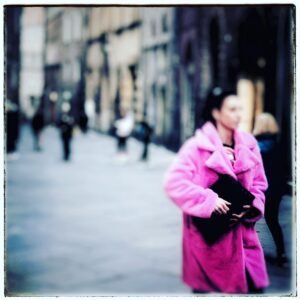
Lesley: Si la capisco. E comunque anche mio figlio ora, crescendo, ha capito il vantaggio di parlare due lingue. / (EN) Yes I understand her. And by the way, even my son now, growing up, has understood the advantage of speaking two languages.
CH: Prima da piccolo a lui piaceva parlare inglese in italia o no?- (EN) As a child, did he like to speak English in Italy or not?
Lesley: Si, lui è sempre saltato da una lingua all’altra, è curioso, vuole sempre sapere se c’è una cosa che non capisce, non ha problemi a chiedere. / (EN) Yes, he’s always jumped from one language to another, he’s curious, he always wants to know if there’s something he doesn’t understand, he has no problem asking.
“In giro” e Nostalgia di casa
CH: Un’ultima cosa che ti volevo chiedere. Nella lingua italiana ci sono delle parole o delle espressioni che ci piacciono in particolare? Per esempio a me in inglese piace tanto l’espressione “it is not my cup of tea”, mi da subito l’idea dell’Inghilterra! – (EN) One last thing I wanted to ask you. In the Italian language are there any words or expressions that you particularly like? For example, in English I really like the expression “it is not my cup of tea”, it immediately gives me the idea of England!
Lesley: Si ho capito che intendi. A me piace la frase “vai/andare in giro”, che è difficile da tradurre in inglese, non c’è l’equivalente, e ci sono tante frasi così che si usano spesso e non si usano in inglese. / (EN) Lesley: Yes, I get what you mean. I like the phrase “andare in giro”, which is difficult to translate into English, there is no equivalent, and there are many phrases like this that are often used here and not used in English.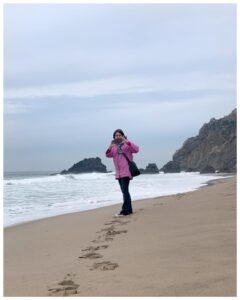
CH: Come ti trovi a vivere in Toscana dopo tanto tempo?- (EN) How is for you to live here after so many years?
Lesley: Sono 20 anni ora. Si sta bene qui, mi piace, per crescere un figlio è perfetto, è sicuro. Certo ci sono delle cose che mi mancano della città, ma se posso viaggiare, allora sto bene qui. Mi basta scappare ogni tanto! Mi mancano Londra le cose da fare lì, teatro, i negozi, la famiglia…ma è normale!
(EN) It’s 20 years now. It’s good here, I like it, it’s perfect for raising a child, it’s safe. Sure there are some things I miss about the city, but if I can travel, then I’m fine here. It is enough for me to just run away from time to time! I miss London, most of all the things to do there, theatre, shops, family…but that’s normal!
CH: Vivendo all’estero è normale, manca sempre qualcosa del nostro paese! Noi comunque in Toscana siamo molto felici di averti con noi e se volete scoprire di più del suo lavoro e delle esperienze organizzate da lei potete trovarla su Instagram qui per le foto, qui per le sue illustrazioni. Io ti ringrazio e ti abbraccio!
(EN) Living abroad all this is normal, we will be always missing something from our Country! However, in Tuscany we are very happy to have you with us!
Dove trovare Lesley:
If you want to find out more about Lesley’s work and the experiences she organizes, you can find her on Instagram HERE for the photos, @Lesleyericaphotos and HERE for her illustrations.: @lesleyericaillustrations. Thank you!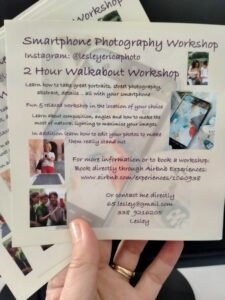
Lesley: Grazie Chiara a te e a presto!- (EN) Thank you Chiara! Ciao, see you soon !